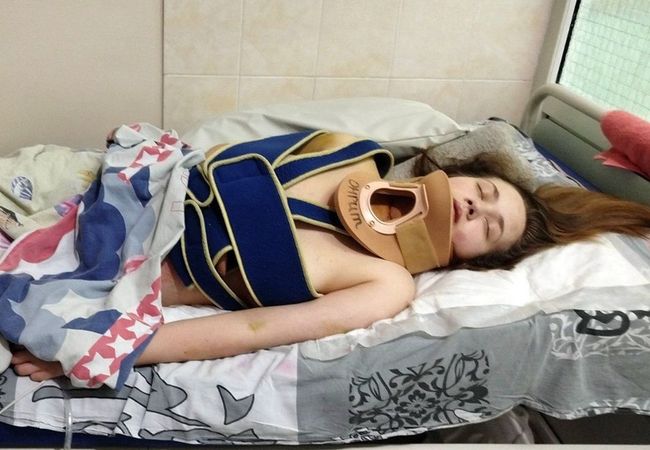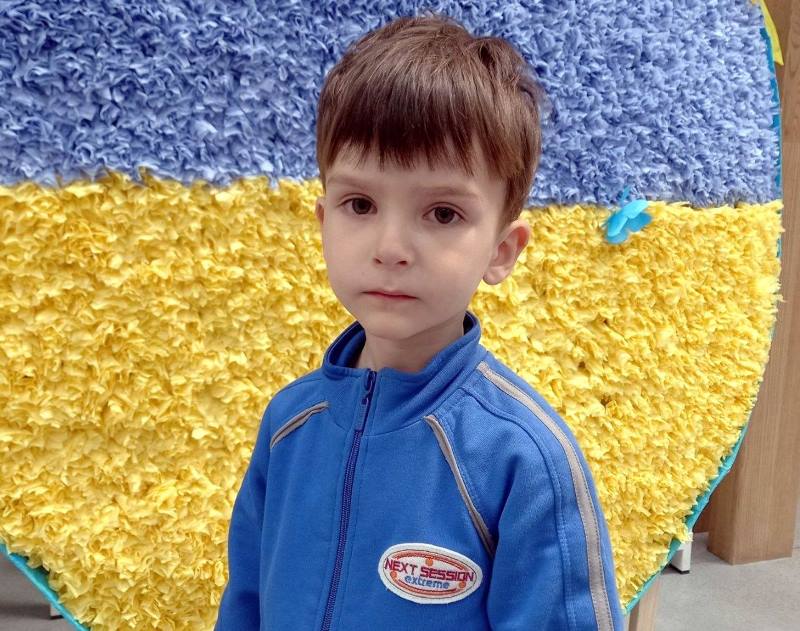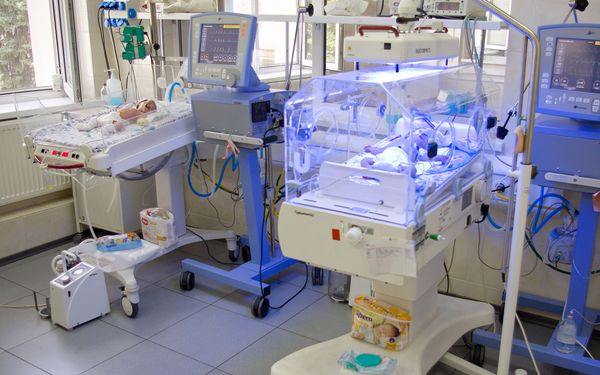When Wendy and Rob Saunders saw Macey, 3, for the first time, they knew that she was their daughter. Parents of three children already, the Saunders decided to adopt Macey through Reece's Rainbow, an international orphan ministry that helps locate children with Down syndrome who are available for adoption.
"When we arrived at the orphanage in Ukraine to start the adoption process, we were amazed by what we saw," Rob said. "The children were playing outside in the dirt. All they had on was a hat and underwear. It was so different from what we were used to seeing."
The adoption process began in March 2007 and was over by July, with Wendy and Rob returning home with Macey on Aug. 17. The Saunders' youngest child, 4-year-old Carley, who also has Down syndrome, was one of the most excited with the new addition to the family.
"When we got back home, Carley said to us, 'Thank you for my sister, I love my sister.' She was so excited," Wendy said.
The Saunders later realized Macey had a hearing problem. Their doctor discovered that her ears had been clogged for the first three years of her life, resulting in an infection that was left untreated. Tubes were inserted into Macey's ears to make it easier for her to hear, and she began to learn sign language to close the communication gap.
Today, the Saunders have embraced their new addition and enjoy playing games and spending family time together.
"I hated being the only child, and to some extent, Carley was the only child. There wasn't anyone on her level," Wendy said as Carley and Macey ran across the living room chasing one another.
The biggest obstacle for both Macey and Carley has been their speech. The family uses the Sara Rosenfeld-Johnson Oral Motor Exercises for Speech Clarity program to help with their speech. The program helps to improve speech sound production and awareness.
"They love using the books in the program because they're doing it all by themselves," Wendy said.
Carley found her mother's comment to be a cue to recite the alphabet, which she learned through the program.
Milestones for Carley and Macey are very different from the ones their older brother Elliott, 19, and sister, Rachel, 17, had growing up.
"We knew the older ones would walk and talk, so when we see the big milestones with Carley and Macey, we appreciate them more," Wendy said as Carley swung the new ponytail Rachel put up for her.
"They've both had to work so much harder for their milestones," Rob said. "They put a smile on our face each day because we never know what they will do or learn in a day."
One of the biggest milestones for Carley was being able to walk when she was 13 months old, as well as the clarity and fluidity of her speech. For Macey, it was being able to transition quickly into her new family and learning how to sign to communicate her needs better.
"It's just not important what other people may think," Wendy said as Macey put on her hot pink, feathered Barbie shoes and pranced across the room. "Down syndrome children can do everything a normal child can do, it just takes them longer. The biggest thing to get adjusted to is having to compare your child to a typical child."
Wendy and Rob Saunders want others to know about Down syndrome and that it's not the end of the world if your child is born with the disorder.
"When we found out that our baby (Carley) had Down syndrome, we didn't know what to think. The biggest problem was misinformation. The doctors give you this mental picture, but you're still not sure what it really means," Rob said. "You're told that your child might not ever walk or talk, but you're not given the other side, that there are people in the world with Down syndrome living productive lives."
From their experiences learning that their child would be born with Down syndrome, Rob and Wendy decided to start a support group for families facing the same situation. Through the group, The Peninsula Trisomy 21 Organization (PT21), Rob and Wendy distribute parent packages to families expecting a child with Down syndrome. Their goal is that no one else would have to go through the confusing and trying time they did.
"We want to show them the other side of the situation, the joy and pleasure of having a child with Down syndrome," Wendy said. "These are God's children, too, and all children have their own strengths and weaknesses."
Having two children with Down syndrome has taught the family patience and appreciation for what they have.
"I love Down syndrome children. Both of my girls have taught me a lot and how to notice more things and appreciate them more," Wendy said. "They teach unconditional love more than anything else."
Learn more
For more information on the support group, which provides new parent information, community training seminars, family outings, advocacy in school and monthly social meetings, visit www.dsavp.org.



